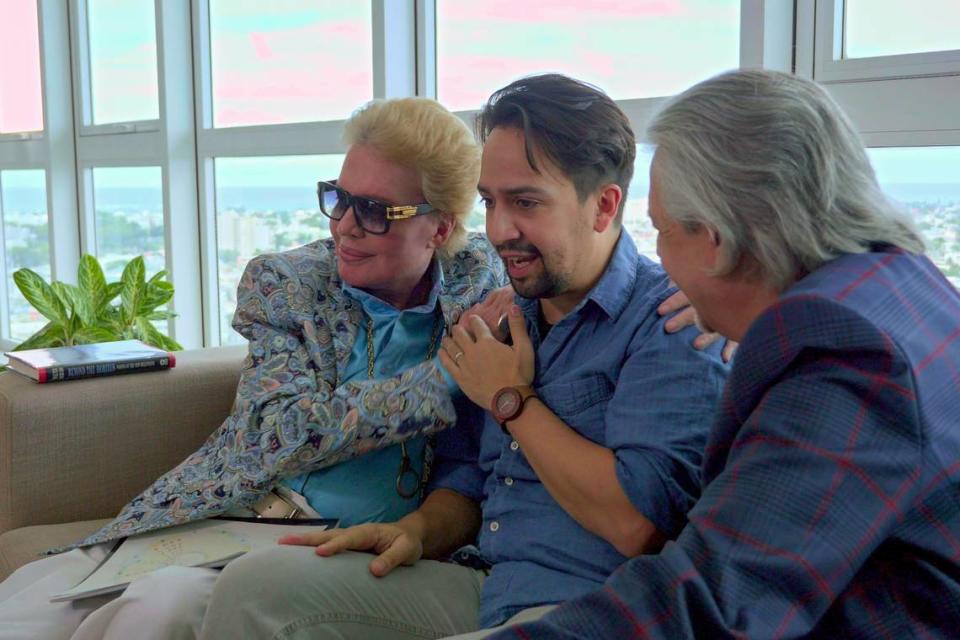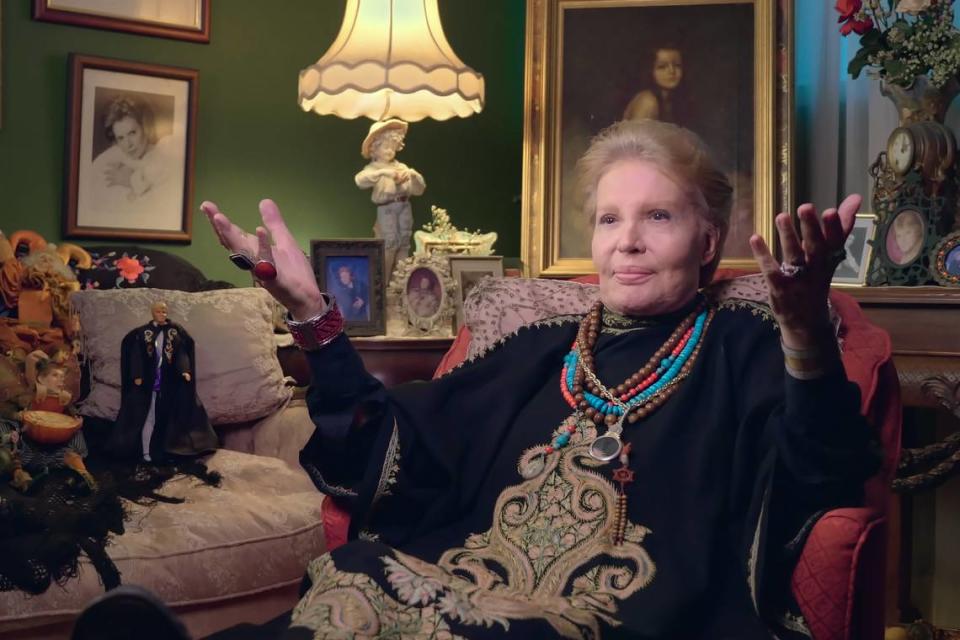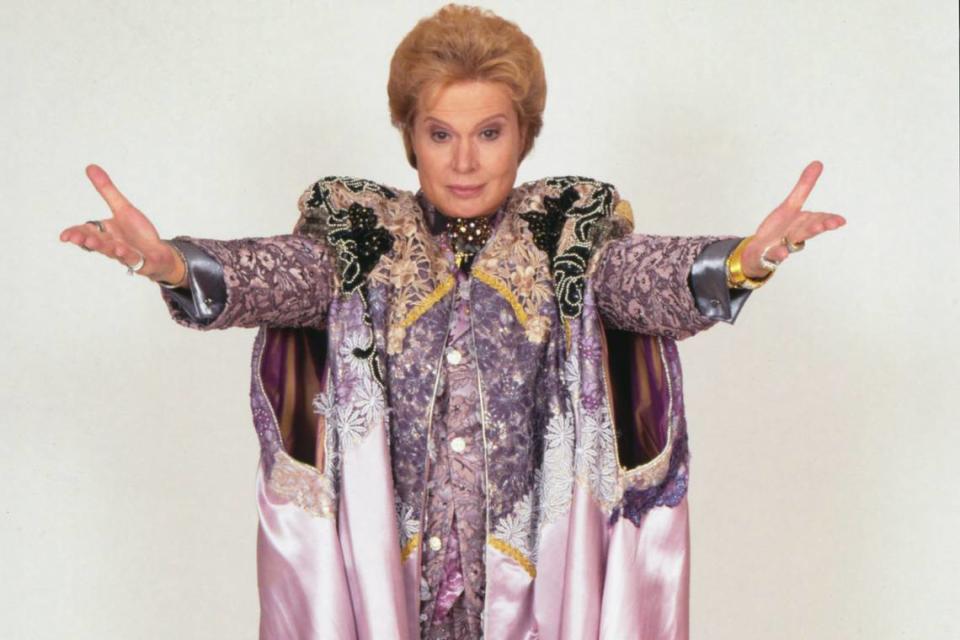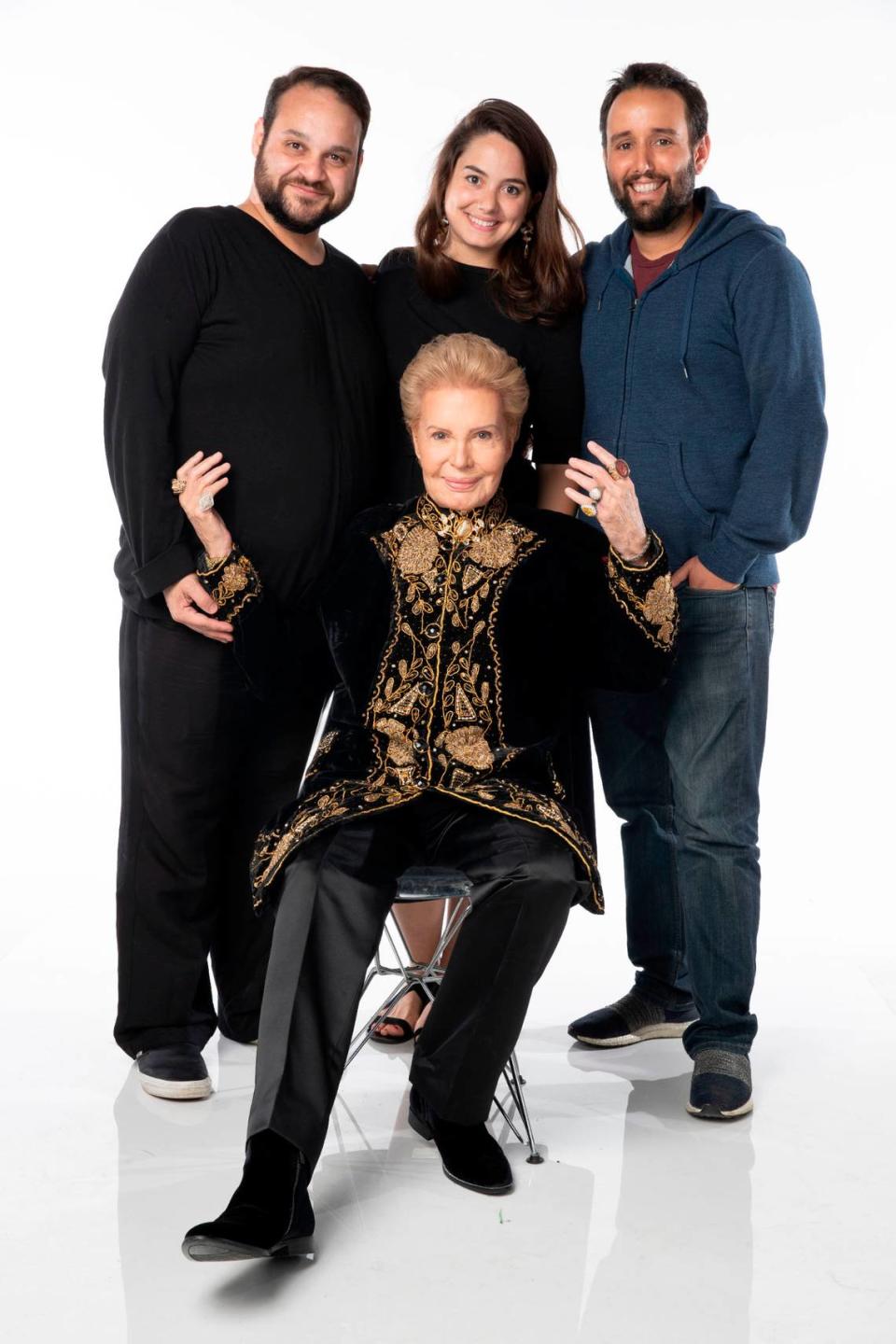‘Mucho mucho amor’ delves into the life and secrets of the astrologer Walter Mercado
Movies, like life, are made up of details. And there’s a scene in the documentary “Mucho mucho amor,” released by Netflix this week, that captures the essence of a rich and complex life, that of Walter Mercado Salinas.
The Puerto Rican astrologer and artist, who died in November, reached the homes of millions of people for decades with his predictions and horoscopes, yet remained a mystery.
In one scene, Mercado enters the outdoor plaza of the HistoryMiami Museum, which the previous night had inaugurated an exhibition dedicated to him, with his legendary capes and a variety of objects that documented his career as a dancer, actor and eventually the best known astrologer in Latin America.
Tired and in pain but not defeated, Walter sits on a wheelchair pushed by his lifelong assistant, Willy Acosta. The scene, in a public place, is one of the most intimate that can be imagined for a movie. Walter looks at the huge poster the museum has put up to publicize the show, and suddenly there’s an air of reflection about his life and fondness for the person who has accompanied him for many years.
Walter and Willy don’t exchange many words, because words are not needed between them. They have a “unique” connection, according to the directors of the documentary, Cristina Costantini and Kareem Tabsch, and producer Alex Fumero.
“When we started to film the documentary, we believed that it was a very special relationship, if not a romantic relationship one with very deep emotional connections,” said Fumero.
Willy acknowledges in the documentary that for many years, he and Walter asked themselves if there was something more than friendship between them. But, in the end, is it important to have an answer?
“After spending so much time with Walter, I still don’t know,” said Fumero, noting that it took two years to film the documentary.
Money and sexuality
The documentary sets out to explore the man behind the makeup and the capes, the one who eats breakfast and sleeps with his dog, the one who takes hundreds of vitamin pills to extend his already long eight decades, and the one who hides among the lights and paintings in his home in San Juan, which looks like an art gallery but is full of love because Walter was always very family-oriented.

That’s why the desire to film him came from two Miamians, Tabsch and Fumero, who grew up watching Mercado on television, keeping silent on orders from their elders as he read off the horoscopes for the family’s signs. The same praise comes from Broadway composer and actor Lin-Manuel Miranda, interviewed for the documentary, who tries on one of Mercado’s sequined capes, that one with the Puerto Rican flag design that he wore for a Puerto Rican Day parade in New York City.
“Walter was a pioneer in different ways, someone who presented as masculine and feminine and who managed to succeed in a market that we know is very machista and at times homophobic,” Fumero said.
Tabsch added that although issues of sexuality were not spoken about openly in the time and place that Mercado grew up, the astrologer was always authentic.
“Even though he did not like labels, I believe that each time he appeared before a camera or on a stage he showed us who he was,” said Tabsch. “He lived in an authentic way, not thinking about the judgments that people were going to make when they saw a man with makeup.”

But it was not easy to persuade Walter to understand that a documentary is not a television special that only shows the marvelous parts of his life. The filmmakers had to push hard to reach difficult issues like his sexuality, his relationship with money and his fight with his agent, who blocked him from using his name for years and sparked a legal battle that cost him thousands of dollars and finally broke his health.
“We had to win his trust, because at the beginning it was a performance. He did not relax and did not want to talk about anything negative,” said Fumero, who added that the filmmakers asked him in different ways about the problems with the agent, Bill Bakula, but Mercado only heaped praise on Bakula.
“I had to go to Ivonne and tell her, ‘Your uncle is not telling the truth,’ ” Fumero recalled about the support he received from Walter’s nieces, including Ivonne Benet Mercado.
“I suffered,” Mercado finally acknowledged, as if asking to be left alone.

Fumero also said that Mercado always had a complicated relationship with money, largely because he did not understand it.
“The reality is that even though he loved luxury and elegance, he was not focused on the money, but on living the kind of life he loved — being in front of the audience, loving them and being loved,” he added.
Betty Mercado, a niece who has continued his work, writing horoscopes that are published daily in newspapers like el Nuevo Herald, approves of the candor achieved by the documentary.
“What I most like is that ‘Mucho mucho amor’ shows Walter just as he is,” she said, using the present tense. “Committed to his audience and his family. We can see Walter the man, Walter the artist and Walter the astrologer. And the man with an incomparable human quality.”
Costantini said some of his favorite images were shot in Mercado’s home when he was sick and could not sit down for interviews. The filmmakers focused on the most intimate details, like the objects the astrologer collected during his trips abroad — a gift to fans who can see the private world he built in a two-story home in Cupey, a quiet gated community in San Juan.
“They say that we should not meet our heroes because they can disappoint, but Walter was a person of great gentleness. He made everyone in the room feel special. I did not expect to find someone so full of love,” said Costantini.
Financing films in Miami
Fumero, who left an executive job at HBO to become an independent producer, pointed out that the crew of “Mucho mucho amor” had few resources. They started with a $10,000 grants from ArtesMiami, a nonprofit that supports arts in the city.
“The North American world refused to understand the importance of Walter, and our people do not support with money,” the producer complained.
Fumero also mentioned the recent controversy over the Netflix movie “The Wasp Network,” condemned by many Cuban exiles because it portrays the views of the Cuban government, showing the Cuban spies as heroes and discrediting anti-Castro leaders in Miami.
“If we want to tell our own stories and culture, if we want to show our heroes, we have to support with money, with promotion,” said Tabsch, a movie promoter who founded O Cinema, now operating out of the former Miami Beach Cinematheque.
For Costantini, her dream is to see the documentary, which made its debut at the Sundance Film Festival last year and was nominated for the Grand Jury Prize, reach a broad audience through Netflix.
Tabsch added that the message of Mercado, who was not linked to any one religion, could reach even further.
“His message was love for the other. If someone lives a life of love and is loved, he will succeed.”
To watch the documentary: www.netflix.com/muchomuchoamor


